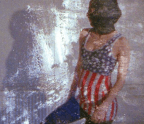Is there a film book more influential than Amos Vogel’s Film as a Subversive Art? Just reading the opening paragraph reminds one of the urgency and curiosity it transmits to the reader—now, here’s a mission statement, but the mission is to make you think: “This is a book about the subversion of existing values, institutions, mores, and taboos—East and West, Left and Right—by the potentially most powerful art of the century. It is a book that traffics in skepticism towards all received wisdom (including its own), towards eternal truths, rules of art, ‘natural’ and man-made laws, indeed whatever may be considered holy. It is an attempt to preserve for a fleeting moment in time—the life of this book—the works and achievements of the subversives of film.”
As it turned out, Vogel erred on the side of modesty when he considered the life of this book tied to a fleeting moment in time, though, in a way, he was still right. Published in 1974, Vogel’s magnificent counter-proposal to conventional histories of cinema, was a work that could only have been conceived in this form at this very moment in time. But its impact (and shelf life) reach into the present, as the centenary celebrations for Vogel (1921–2012) have confirmed throughout the previous year, with tributes all over the world and a gorgeous revised edition of his foundational work by Film Desk Books. Like the artists and works championed by Vogel in its pages, Film as a Subversive Art met with the inevitable fate predicted by its author—namely, that any subversive achievement is instantly doomed to be absorbed into the status quo—and so this influential counter-history has itself become a reference work, even a canonized classic of its kind, which may strike one as ironic given Vogel’s passionate advocacy for outsider positions and principled disobedience with regards to art and thought.
Arguably, though, the book just fulfilled its intended educational function, for what Vogel would later call “the sum of my life’s work up to that point” was conceived as an act of philosophical and social intervention. Vogel contextualized his ideas about subversive art through extensive observations reaching far beyond the world of film: he considered it a moral weapon with which to fight inequity, and a necessary reaction to the growing complexity of a modern






